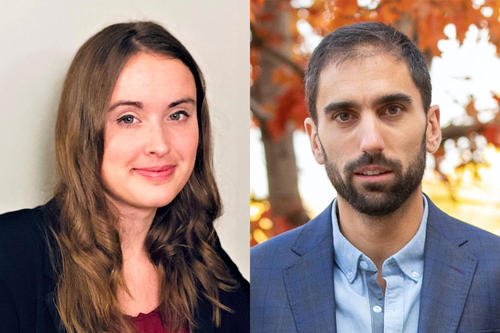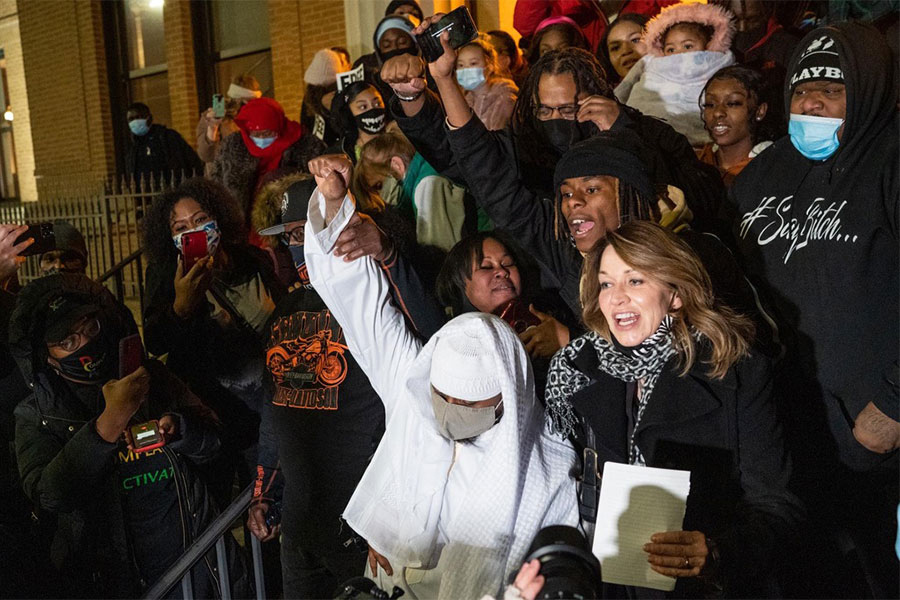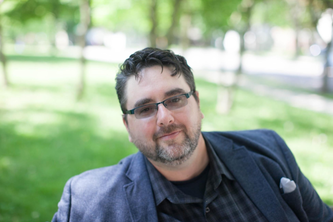
Cheers greeted Myon Burrell as he walked out of the Stillwater Correctional Facility Dec. 15 after serving 18 years of a life sentence.
A Minnesota Law professor and two Law School clinic students played key roles in gaining freedom for Burrell.
Professor Perry Moriearty, student attorney Kaitlyn Falk, and recent graduate Matthew DiTullio ’20 represented Burrell through the Law School’s Child Advocacy and Juvenile Justice Clinic.
The commutation of Burrell’s sentence came a week after an independent panel of national legal experts released a report recommending his release. The report raised concerns about the integrity of Burrell’s conviction and whether he was involved in the shooting of Tyesha Edwards. It called for the Minnesota Attorney General’s new Conviction Review Unit to investigate the case, citing questionable evidence including dubious jailhouse informant testimony and eyewitness identification.
Falk and DiTullio worked shoulder to shoulder with Moriearty, spending hours gathering information, writing, and speaking to Burrell, his family, and others to prepare a petition seeking Burrell’s release from the Minnesota Board of Pardons.
“This is an important and largely untapped area of the criminal legal system in Minnesota, and [Matt and Kaitlyn] played a critical role in developing our arguments, planning the hearing, and crafting our legal presentation,” says Moriearty.
Board of Pardons members Gov. Tim Walz and Attorney General Keith Ellison voted to commute Burrell’s sentence. Burrell will be on supervised release for the rest of his term.
Now 34, Burrell was 16 when he was convicted of killing 11-year-old Tyesha Edwards, who died when a stray bullet struck her in November 2002. He has maintained his innocence for the past 18 years. Burrell was serving consecutive sentences of mandatory life in prison in Edwards’ death and 186 months for the attempted murder of Timothy Oliver, reportedly the target of eight gunshots fired outside a home near where Edwards lived.
Moriearty and the students began representing Burrell in August of 2020.
Working with Burrell, Falk says, made statistics about racial inequities in the criminal justice system more meaningful. Black juveniles are eight times more likely to be prosecuted as adults than white juveniles, says Falk, and account for 37 percent of the incarcerated population but only 7 percent of Minnesota’s population.
Falk, a Wisconsin native, says her involvement in Burrell’s case has reaffirmed her interest in working criminal justice.
“I’m one of those examples of a student who really wanted to start as a prosecutor and then you get cases like this and you kind of get a hunger to be a defense attorney,” says Falk.
DiTullio, also from Wisconsin, was working with the clinic as a paid intern.
“We talked to all of these folks and Myon himself to tell a clear, concise story of why he should be released and the support he will have,” DiTullio says. “It’s clear that regardless of the innocence component, his incarceration is not benefitting anyone, it’s obviously not benefitting him, and it’s not benefitting society as a whole.”
DiTullio expects to begin a clerkship with the Alaska Court of Appeals in February. The law school’s public service focus and commitment to social justice and racial equity persuaded him to enroll at the University of Minnesota.
“I went to law school knowing I wanted to be a public defender or work somewhere in criminal justice,” DiTullio says. “I’m especially interested in working with juveniles because there’s so much work to be done in that realm between juveniles not having fully developed brains and feeling like you can have a big impact in a child’s life.”
-----
The 1994 law under which Burrell was sentenced was enacted amid a moral panic in this country about a predicted onslaught of adolescent super predators. But those predictions were wrong and juvenile sentencing laws have changed as neuroscientists over the last two decades have documented key neurodevelopmental differences between adolescents and adults.
Read the original version of this story at Minnesota Law.
- Categories:
- Law and Policy






